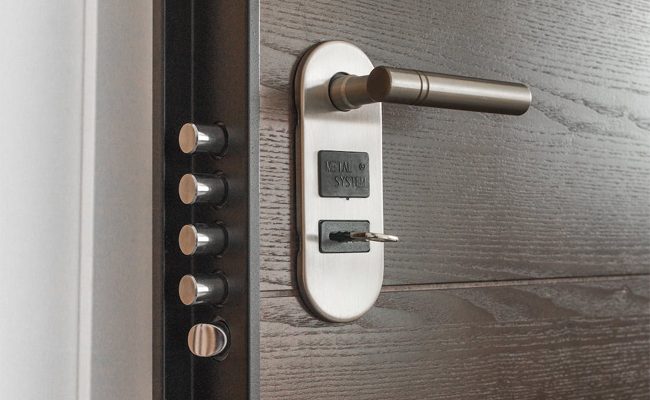
Choosing to own a home or rent out depends entirely on your personal lifestyle and financial security. 18% of millennial renters plan to rent forever because of the rise in the cost of owning a house, high inflation, and more. Renting gives you the flexibility to pick where you live, and saves you on gas prices if you move closer to the workplace. It also doesn’t require paying for repairs and is often cheaper with lower utility costs. Despite these benefits, security remains a crucial concern. Here are steps you should consider.
1. Research the Area’s Safety
Before picking out your property, thoroughly check the reviews and feedback left by previous renters and contact them to get more information about your landlord. You can ask in the neighborhood about any security threats and match them with crime statistics.
It is also a good idea to monitor the crime rate through apps like Crimewatch or local police reports. You should also check your area isn’t prone to natural disasters such as floods, earthquakes, or forest fires; otherwise, ensure that the property structure can sustain damage.
2. Perform a Safety Check
Check to see if your door and window locks are functional. Your key and key codes should be updated so previous tenants can’t access your rental. Ensure there is good exterior lighting, as it can deter criminal activity. Equipment such as smoke detectors should be in working order to be alerted to danger. You should also check for emergencies, such as fire escape plans to escape safely.
3. Renters Insurance
Your landlord’s property insurance will only cover damages incurred to the building; you need renters insurance for your living arrangements instead. It also covers all your personal belongings, including clothes, luggage, furniture, and electronics. It reimburses the losses caused by fire, smoke, theft, riots, falling objects, and natural disasters.
It also provides liability coverage and protection in case someone gets injured in your home or you damage someone’s property. Renters’ insurance will also offer guests medical protection and help pay for their medical expenses. If your home becomes inhabitable due to a disaster, the insurance will cover your rent and the cost of staying in a hotel, food, and more.
Before choosing your renters insurance, consider what is and isn’t being covered. Some packages don’t cover damages caused by floods or earthquakes. Renter’s insurance is often affordable, but the company may offer discounts, such as 55 and retired discounts.
4. Security Camera Systems or Video Surveillance
Renters can often install security cameras inside their property without needing the landlord’s permission. However, to install them outside, you must comply with security camera laws and ensure you aren’t disturbing other tenants’ privacy – your cameras shouldn’t capture nearby homes. Also make sure your cameras are not picking up on any audio, as that can be illegal. Reasons you may need video surveillance can be:
- Landlords enter without informing you
- Landlords unlock your rental home or apartment for maintenance workers without your consent
- Someone has picked your locks while you were away or attempted a break-in
- Former renters can still access your place
- There are vulnerable spots inside the apartment, such as a balcony
- Someone entered your apartment, and valuable items are missing
- Packages go missing from the door
- Suspicious next-door activity
- You want to have surveillance footage to keep as an evidence record
You may need your landlord’s permission if installing a camera requires drilling or some form of damage to the apartment. Otherwise, you may install wireless or wifi-security cameras as they don’t require drilling through the walls; you can either place them on the surface or mount them.
5. Install a Security System
Home security systems are electronic devices with a central control panel that protects your home against intruders. They include motion sensors, sirens, entry sensors, window sensors, sirens, smoke and CO2 detectors, and more. You can opt for the following security systems:
- Wired: The security systems are hardwired into your home’s electrical system
- Wireless: Connecting apps with the monitoring center depends on batteries, Wi-Fi, and cellular backup.
- Smart: They are connected to the internet, allowing you to control the system remotely. You can receive live footage and notifications when alarms go off. It deters crime and informs you in case of a gas leak or fire when smoke alarms go off.
You can have a professional come in to install the system and monitor the systems. They will be alerted if there is a threat, and a trained security expert will attempt to reach you or your emergency contact. If you have a DIY or self-monitored system, an alarm will go off (provided you installed one), and you yourself have to call 911.
Other tips
You can also add a deadbolt, door jammers, or window pins on your doors and windows for additional security. You should store your valuable items like jewelry in a safe. You can ask the landlord to install a CCTV camera (if you can’t do it yourself) or hire a guard. You can trim trees, bushes, or other plants to reduce the hiding spots of criminals.
End note
It is essential that you pick out the right rental home or apartment for yourself to minimize security risks. You should still use these measures to increase your rental property’s security. While renters insurance will not prevent theft, it will reimburse you for your losses. Installing security cameras or systems on top of what your rental property offers can further deter any criminal activity and give you peace of mind! Your safety should always be your top priority.
Leave a Reply